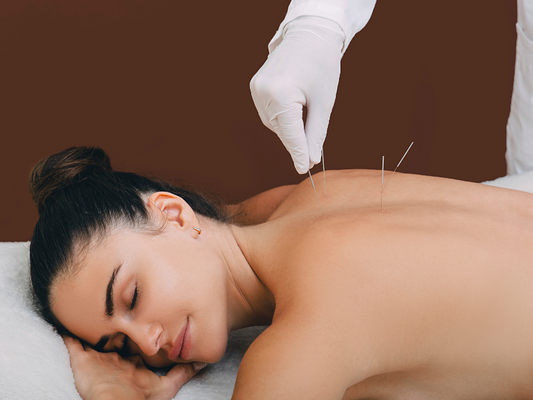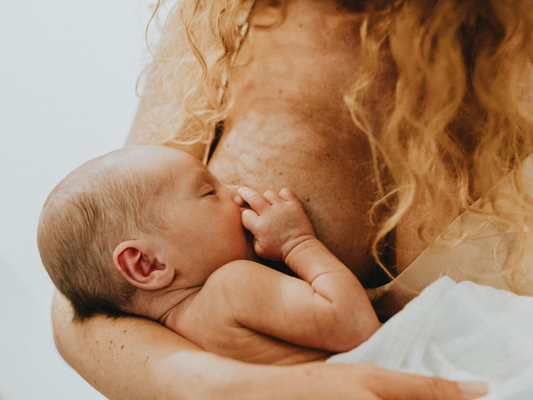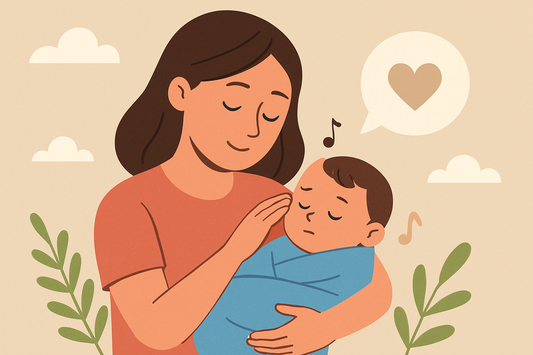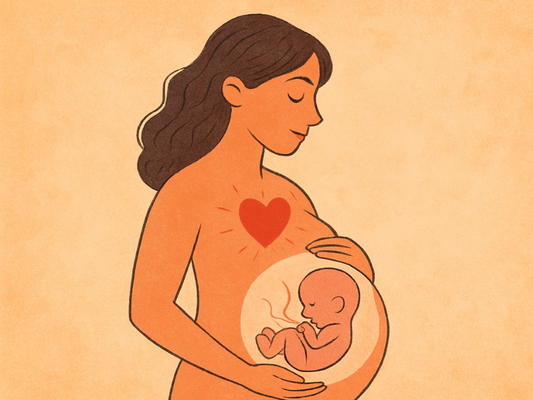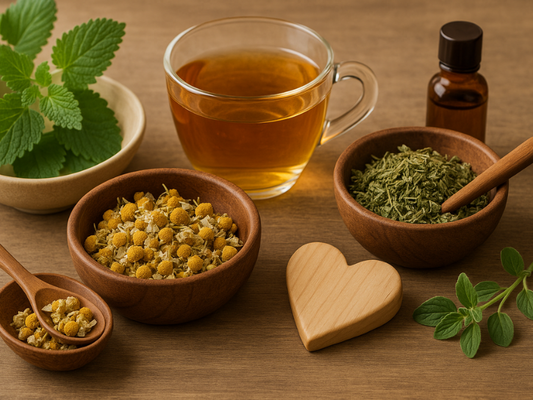
Postpartum Isn’t Over in 6 Weeks: Rethinking Recovery This Mother’s Day
Beyond Six-Weeks
Let’s be honest: a six-week postpartum checkup cannot possibly summarize the whirlwind of healing, adapting, and feeling that occurs after childbirth. Yet, this milestone often becomes the unofficial “finish line” of postpartum recovery.
New moms are expected to bounce back—resume daily life, return to work, or even reengage in intimacy—as if the most transformative experience of their life was just a brief interlude. But postpartum recovery is not linear, and it certainly doesn’t wrap up in a month and a half.
Fun fact: In many traditional cultures, postpartum recovery lasts 30 to 40 days before full reintegration into society begins—and even then, mothers are still deeply supported. Research from the World Health Organization states that postpartum care should extend beyond six weeks and continue up to one year or more.
At MotherBees, we understand these truths intimately. We walk alongside mothers through their entire healing journey, offering real nourishment, functional support, and heartfelt encouragement for as long as it takes.
Where the Six-Week Myth Comes From—and Why It’s Harmful
The six-week postpartum checkup stems from a standardized medical model that mainly focuses on physical markers: is the uterus shrinking? Has bleeding stopped? Are stitches healing? While these are important, they barely scratch the surface of what recovery truly means for the whole woman—physically, emotionally, hormonally, and socially. Unfortunately, this checkup has evolved into a cultural marker suggesting, "You should be fine now."
Many postpartum complications and mental health issues develop well beyond this six-week window, including postpartum depression, thyroid imbalances, and chronic fatigue. When care and concern vanish after the six-week mark, mothers are left isolated, even blamed, for not bouncing back.
This medical milestone also fails to honor invisible healing. Scars may be fading, but what about pelvic floor damage, trauma from birth, or lactation challenges? This is why we advocate for an expanded understanding of postpartum—and why foundational support like Heng’s book, The First Forty Days, along with essentials like Postpartum Recovery Underwear and Maternity Compression Socks aren’t indulgences, but necessities for lasting comfort and healing.
Recovery Milestones Through the First Year
Healing from childbirth happens in waves. Think of the postpartum year in trimesters—just like pregnancy. The "fourth trimester" (birth to 3 months) is about immediate healing, establishing breastfeeding, and profound hormonal shifts. During this time, essentials like Hands-Free Pumping & Nursing Bras and Silicone Milk Storage Bags can help moms multitask and store precious milk during unpredictable days.
By the "fifth trimester" (3-6 months), mothers may start facing fatigue, returning to work, or adjusting to a more active routine. Their bodies are still recalibrating, and hormones continue to shift, sometimes contributing to anxiety, hair loss, or libido changes. Functional wear like the Organic Cotton Skin to Skin Wrap Top promotes bonding and comfort, especially during these in-between moments.
The "sixth trimester" (6-12 months) is often overlooked entirely. Yet many mothers are still experiencing core weakness, menstrual irregularities, or even surprise issues like pelvic organ prolapse. A study published in the Journal of Women’s Health Physical Therapy found that full pelvic recovery can take up to a year or more, especially without guided physical therapy. During this time, high-coverage items like High-Waisted Postpartum Underwear provide gentle core support, while tinctures like More Milk Plus encourage sustained lactation if breastfeeding continues.
The Silent Struggles
Pelvic Floor, Libido, Hair Loss, and Fatigue
These issues are not "side effects." They’re core parts of recovery—and they deserve visibility. The pelvic floor, for example, undergoes immense strain during pregnancy and birth. Without intentional recovery, issues like incontinence or painful intercourse may linger for months. Physical therapy, supportive wear, and conversations with a pelvic floor specialist are essential. In the meantime, items like Reusable Nursing Pad Sets and Soothing Breastfeeding Gel Packs can provide relief for breastfeeding-related discomfort, which can aggravate body tension.
Hair loss peaks around 3-5 months postpartum due to dropping estrogen levels. While it can be shocking, it’s normal and temporary. But that doesn’t make it any less frustrating. Ensuring your diet is rich in protein, healthy fats, and iron can help—a reminder that postpartum nutrition doesn’t end with the placenta. To support hair health during this time, our Postpartum Hair Loss Vitamins are specially formulated with biotin, zinc, and key postpartum-friendly nutrients to help reduce shedding and promote regrowth.
Libido is another rarely discussed piece of the puzzle. Hormonal imbalance, emotional exhaustion, and the pressure to "perform" all collide here. Instead of rushing, it's vital to allow space, communicate with partners, and honor where your body is. Comfortable foundational layers like the Under-the-Bump Bikini Underwear Pack help moms feel cozy and cared for without constriction.
Nourishing the Long Haul
What Foods Aid Ongoing Recovery
In the early weeks, soft, warm, and easily digestible foods support tissue repair and hormone stabilization. But nourishment shouldn’t stop once the freezer meals run out. The postpartum body continues to rebuild its blood supply, replenish iron stores, and recalibrate hormone production for many months.
Nutrient repletion can take 6–18 months depending on how depleted the mother was before and during pregnancy. She emphasizes foods rich in omega-3s, vitamin A, choline, and collagen—think liver, bone broth, leafy greens, and sesame-rich dishes.
Hydration is just as critical. Breastfeeding or not, staying hydrated aids circulation, milk production, and energy levels. Keep room temperature filtered water nearby and consider adding electrolytes or herbal infusions. Warm broths, congee, and soups continue to be gentle powerhouses for both digestion and nourishment.
Reframing Recovery as a Community Responsibility
Healing after birth should not rest solely on the mother’s shoulders. The pressure to "do it all" in isolation leaves too many women burnt out, unseen, and unsupported. We need to normalize asking for help—and offering help without being asked. It starts with redefining postpartum care as a community act: shared meals, errand runs, baby-holding shifts, and most importantly, non-judgmental listening.
Systemic support—including paid parental leave, mental health access, and practical daily help—plays a major role in maternal well-being. The idea that a mom "should be fine" in six weeks dismisses the reality that care, in its many forms, is needed far beyond that point.
At MotherBees, we honor the village model. From postpartum essentials that ease daily discomfort to nourishing recipes and heartfelt courses, we believe healing is a journey shared.
Let this Mother’s Day be the reminder: a mother’s recovery is as sacred as the birth itself.
The Long Road is Still Sacred
Postpartum doesn’t end at six weeks—or even after the first forty days. It is a year-long, and often longer, season of re-discovery, repair, and reclaiming your new self. This Mother’s Day, may we give space for that healing. May we offer kindness before critique, support before expectation. Let’s replace "you should be over it" with "how can I help you today?" And let’s finally honor mothers with the care they truly deserve.


